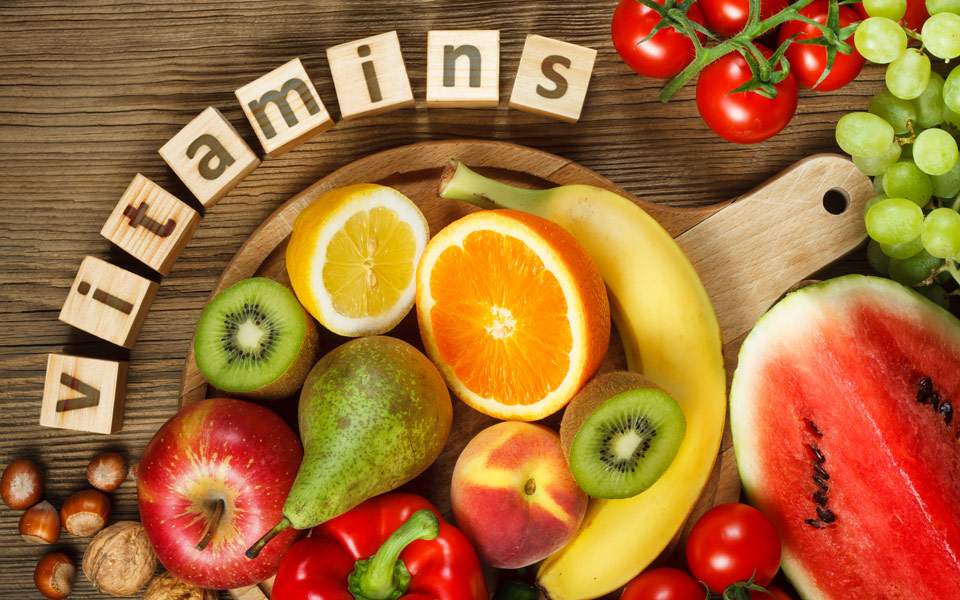Foods boosting the Immune System

Post Traumatic Stress Disorder (PTSD) & Physical Training
March 28, 2020
Home Workout – Stay fit – Save money
April 14, 2020Nutrition and health are two concepts going hand in hand, so if you wonder, “Are there any foods boosting the immune system?” the clear answer is YES.
Many persons are in a rush to downgrade the severity of the situation by saying that “If you are to be infected, it will be done. You can do nothing”.
However, things are not going this way.
You will surely notice that there are times when you feel exhausted, and your body (even your mind) does not perform at its maximum. A moment most likely to be infected by any virus.
Your body looks tired, not at the best condition, requiring a general boost.
Many daily life factors charge your body, resulting to a difficult functioning. Stress, fatigue, poor nutrition, air pollution (also playing a very important role), smoking, abuse, sedentary living, bad sleep, bad psychology, just a few of many conditions experienced everyday and affecting your body in an adverse way.
The result is simple, with your body reaching its limits and starting to malfunction.
Something easily understood, during the performance of daily routine, feeling tired, somehow “heavy”, and vulnerable, with no energy and a difficulty on focus.
What about the diet and its role in the functioning of the immune system.
The immune system – as already pointed out – remains bombarded by the conditions and difficulties of daily living, “denying”you of higher valuable energy and vitality.
Diet (and especially proper nutrition) could replace this energy by maintaining your body healthy and active.
What really means “Good Nutrition” and which are the Foods boosting the Immune System?
You could answer at once “Fruits & Vegetables”.
Clearly, fruits and vegetables are of the key building blocks for a healthy and strong organism; however, it is not your organism’s only nutritional need.
The immune system is your organism’s primary defense mechanism against any threat. Once recognizes a “foreign” element in organism, starts the “war” against it, so protecting the smooth functioning of the entire system.
Seasonal illnesses, flu, viruses, infections, allergies, serious illnesses (such as cancer and arthritis) are prevented by a strong immune system.
Nevertheless, this is a very complex organism mechanism not easily decoded. Scientists, for finding ways to enhance it, have extensively studied the immune system.
Especially nowadays, as threats from ever stronger and more resistant germs and viruses increase, the need for a strong immune system is highly important.
So good nutrition is definitely fruits & vegetables, but they are not the only ones.
The body needs a variety of nutrients, minerals, vitamins and fiber, good fats, minerals, even sugars & carbohydrates.
The topic of nutrition – the right, balanced & healthy diet – is more complex than you think. Nutrition is, in fact, a separate discipline, a science quite complex and very important.
A proper nutrition not only suggests the consumption of right foods, but also requires a proper timing on meals structure as well as a clever combination of foods (so not one cancelling the action of the other).
The creation of a functional nutrition plan ensures the maximum absorption of nutrients received from diet offering the most in your organism.
Therefore, it is true. Good nutrition needs experience & proper guidance!
Essential Nutrients Needed
Here we analyze the essential nutrients contributing to a strong & healthy organism along with a “ready to fight” immune system.
The basic nutrients needed by a person are about 40. You read well, 40.
These substances are essential not only for the organism to function properly, but for the human life, as well.
Below, the main categories in which we classify these nutrients.
1st category: Proteins
They are of utmost importance for preserving human life, being almost 85% of our body composition. Proteins are involved in most of the body’s biochemical processes, playing a key role in the synthesis of other important compounds (such as hormones and enzymes).
Amino acids are their structural element, so divided into 2 subcategories:
- complete proteins (containing all essential amino acids)
- and incomplete proteins (containing only a number of essential amino acids)
The combination of foods may increase or decrease the meal’s biological value, so the proper composition of a meal is highly important.
We meet proteins mainly in foods of animal origin and their by-products. However, there are also plant-based foods.
Proteins of plant and animal origin have not exactly the same nutritional value, but both of them are equally important and essential for the organism.
Indeed, plant-derived proteins (though many think the opposite) outperform animal proteins, as they are of greater biological importance, enhancing the digestive system’s proper functioning.
These foods are legumes, soybeans, cereals, tempeh, peanuts (and peanut butter), almonds, chia seeds, oats, potatoes, cashews, avocado, spinach, corn, Brussels sprouts, broccoli and cauliflower.
2nd category: Carbohydrates
Carbohydrates are distinguished by the number of sugars contained classify them in different categories.
Therefore, we have:
- monosaccharides
- disaccharides
- and polysaccharides
Many tend to remove carbohydrates from their diet for obtaining a rapid weight loss. However, carbohydrates are organism’s primary energy source, being very important.
The proper thing to do is not to exclude carbohydrates from diet, but integrating them in a balanced way.
This practically means proper qualitative & quantitative intake of carbohydrates so organism does not run out of beneficial energy, not causing a weak immune system.
As a major source of CNS (Central Nervous System) energy, carbohydrates are part of a balanced diet aimed at enhancing health.
This not necessarily means that there are no “bad” carbohydrates.
According to advice provided by the World Health Organization, more complex carbohydrates are to be included in your diet (ie oligosaccharides, polysaccharides & polyols) and clearly a lower number of simple carbohydrates (i.e. monosaccharides).
Proper carbohydrate intake boosts the organism’s metabolic rate, maintains the organism healthy and full of energy, so boosting its protection against external dangers (viruses, illnesses, colds).
We introduce carbohydrates to our diet by consuming more fruits, vegetables, whole grains, nuts, legumes, sweet potatoes, soymilk, quinoa, cashews, dairy, peas and peanuts.
3rd category: Vitamins
Vitamins are an essential building block for a strong and functioning organism.
Without them organism functions cannot perform properly, a fact leading automatically to health problems.
When organism is missing the essential vitamins (not even receiving them adequately) cannot synthesize the required coenzymes, resulting to inability to fulfill some of the basic functions of the organism, ending in its malfunction.
“Avitaminosis” – a condition where there is a deficiency of essential vitamins – is a very serious illness, with very critical implications for a person’s health.
There are 2 main subcategories:
- fat-soluble (vitamin A, vitamin K, vitamin E & vitamin D)
- water-soluble (vitamin C, folic acid, B-complex vitamins, nicotinic acid & biotin)
Each vitamin comes in different foods boosting the immune system in a different way, while receiving each one of them is very important for the entire organism’s proper functioning.
Vitamin A found in foods such as egg (mainly crocus), green leafy vegetables, pepper (mainly sweet red pepper), pumpkin, carrots, melon, liver, mango, fatty fish, dairy products, cod liver oil, butter and fortified margarine.
Complex B vitamins – consisting of 8 vitamins found in different foods.
B1 (Thiamin) : asparagus, lentils, liver, peas, green beans, seeds.
B2 (Riboflavin) : eggs, broccoli, cauliflower, asparagus, spinach, almonds.
B3 (niacin) : turkey, chicken, oily fish, beetroot, avocado, seeds, mushrooms, peas.
B5 (Pantothenic Acid) : seeds, liver, mushrooms, oats, broccoli, cauliflower, avocado, oily fish, Brussels sprouts.
B6 (Pyridoxine) : peppers (all colors), bananas, cauliflower, broccoli, chicken, plums, avocado.
B8 (Biotin) : liver, eggs, dairy products, oily fish, avocado.
B9 (Folic Acid) : broccoli, cauliflower, Brussels sprouts, asparagus, lentils, liver, peanuts (and peanut butter), green leafy vegetables, okra, bananas, all citrus, spinach, saffron, maize seeds, nuts, carrots (raw), raisins, mushrooms, zucchini, rice (brown).
B12 (Kovalamine) : oily fish, seafood.
Vitamin C found in citrus fruits, red peppers, kiwi, guava, parsley, thyme, green leafy vegetables, broccoli, cauliflower, Brussels sprouts and Acerola cherries.
Vitamin D received mainly from sun via a process in our skin.
However, there are also foods – especially during winter – assisting the organism to consume this valuable vitamin in a proper way.
Mainly found in fish, eggs (in yolk), liver, dairy products (enriched), mushrooms, cereals, oats and corn oil.
Vitamin E traced in green leafy vegetables, seeds, vegetable oils, nuts, cereals (fortified), fruit juices (enriched) and legumes.
Vitamin K obtained mainly from green leafy vegetables, algae, soy, eggs, soft cheeses, spinach, broccoli, cabbage, fish, dairy products (whole), chives, onions, Brussels sprouts, beetroot, asparagus, cucumber and plums.
4th category: Inorganic elements
Another fundamental group of foods for health and organism’s wellness.
Depending on each element’s amount required for a proper & balanced diet, they are classified in:
- macros
- and micronutrients
The role of all minerals is different but equally important for the smooth functioning of the machine, called organism.
Each inorganic ingredient exists in a different set of foods, easily found in specific informational texts.
5th category: Water
The latest and most vital category, though its proper intake is neglected throughout the day – is the water.
Water is the diffusing means of all the nutrients in the organism, being the largest part of the human body and playing a pivotal role in any of its functions.
Our Proposal
Immune Defence is a natural supplement with Zinc, Vitamin A, C & E, Rosehip and Acerola Cherries.
Has a neutral flavor and can be used also from children.
It supports the resistance of your body to high infectious viruses.









